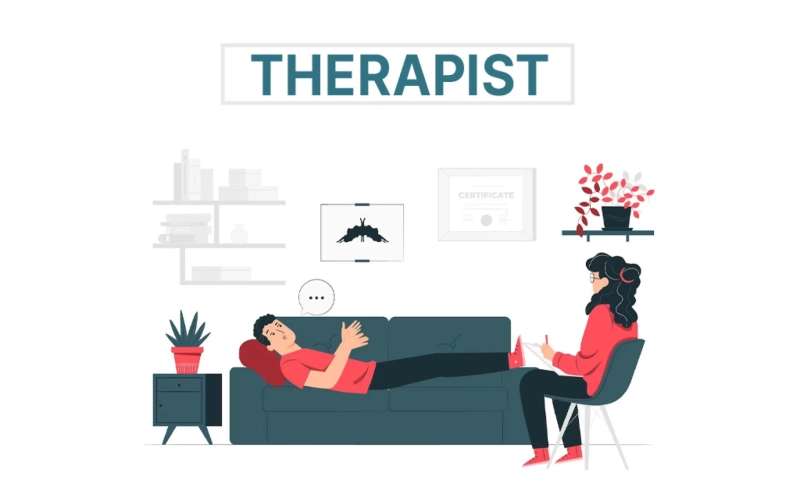Introduction:
Relationships are the foundation of our lives, and nurturing strong and healthy bonds is essential for our well-being. However, challenges and conflicts can arise within families, impacting the quality of relationships. Family therapy offers a powerful and effective approach to strengthening relationship bonds and fostering a harmonious family dynamic.
Family Therapist in USA in Strengthening Relationship Bonds:
In this article, we will explore the role of a family therapist in strengthening relationship bonds, the key principles of family therapy, and the benefits it brings to families seeking to improve their connections.
Understanding Family Therapy:
Family therapy, also known as family counseling or systemic therapy, is a specialized form of therapy that focuses on improving communication, resolving conflicts, and strengthening relationships within the family unit. It views the family as a complex system with interconnected members, and seeks to address issues by considering the dynamics and interactions among family members.
The Role of a Family Therapist:
A family therapist in USA plays a crucial role in guiding families towards healthier relationship dynamics. They are trained professionals who create a safe and supportive environment for family members to express their thoughts, emotions, and concerns. The therapist facilitates open communication, helps family members understand each other's perspectives, and provides guidance in resolving conflicts and fostering positive change.
Creating a Safe Space for Communication:
Effective communication is the cornerstone of strong relationships. A family therapist creates a safe space where family members can express themselves openly and honestly. They encourage active listening, promote empathy, and teach communication techniques that foster understanding and connection. By facilitating productive communication, a family therapist helps family members express their needs, resolve misunderstandings, and build stronger bonds.
Uncovering Patterns and Dynamics:
Family therapists in USA have a trained eye for identifying recurring patterns and dynamics within a family system. They observe how family members interact, communicate, and respond to one another. By uncovering these patterns, the therapist helps family members gain insight into their behaviors and relationships. Understanding these dynamics is crucial for initiating positive changes and strengthening relationship bonds.
Resolving Conflicts:
Conflicts are a natural part of any relationship, but when left unresolved, they can strain relationship bonds. Family therapists assist families in resolving conflicts by facilitating open dialogue and providing a neutral perspective. They help family members express their feelings, explore underlying issues, and find mutually beneficial solutions. Through conflict resolution, families can learn effective problem-solving skills and create a more harmonious environment.
Promoting Understanding and Empathy:
Family therapy emphasizes the importance of understanding and empathy in strengthening relationship bonds. A family therapist helps family members view situations from different perspectives, fostering empathy and compassion. By understanding each other's experiences, emotions, and needs, family members can develop a deeper sense of connection and forge stronger bonds of love and support.
Strengthening Parent-Child Relationships:
Parent-child relationships are foundational in a family. Family therapists work with parents to enhance their parenting skills, improve communication with their children, and create a nurturing and supportive environment. They help parents understand the unique needs of their children, establish healthy boundaries, and foster trust and mutual respect. Strengthening parent-child relationships strengthens the overall family dynamic.
Building Healthy Communication Patterns:
Family therapists in USA assist families in developing healthy communication patterns that promote understanding and connection. They teach active listening skills, encourage assertive communication, and provide tools for effective expression of thoughts and emotions. By building healthy communication patterns, family members can engage in meaningful conversations, resolve conflicts constructively, and nurture positive relationships.
Strengthening Emotional Intimacy:
Emotional intimacy is a vital aspect of strong relationship bonds. Family therapists guide families in deepening emotional intimacy by creating a safe space for vulnerability and emotional expression. They help family members share their feelings, fears, and dreams, fostering a sense of trust and closeness. Strengthening emotional intimacy enhances connection and builds stronger relationship bonds within the family.
Providing Guidance for Life Transitions:
Life transitions, such as marriage, divorce, or the arrival of a new family member, can strain relationship bonds. Family therapists offer guidance and support during these transitions, helping families navigate the challenges and maintain healthy relationships. They provide strategies for adapting to change, managing stress, and fostering resilience, ensuring that relationship bonds remain strong throughout life's ups and downs.
Conclusion:
Family therapy is a powerful tool for strengthening relationship bonds within families. Through the expertise and guidance of a Sugar Land Therapist, families can improve communication, resolve conflicts, and cultivate understanding and empathy. By creating a safe and supportive environment, family therapy paves the way for stronger relationship bonds, greater harmony, and a deeper sense of connection within the family unit. Invest in the power of family therapy to nurture and strengthen the relationships that matter most in your life.



